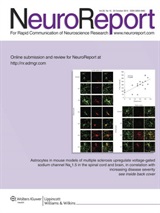 In collaboration with Chinese researchers, Geir Bjørklund investigated the serum levels of zinc (Zn) and copper (Cu) in 60 Chinese children with autism (48 boys, 12 girls) and a control group of 60 healthy sex-matched and age-matched individuals. The researchers also evaluated the severity of autism using the Childhood Autism Rating Scale (CARS) score. The mean serum Zn levels and Zn/Cu ratio in the study were significantly lower in the autistic children compared with the control group (P<0.001). At the same time were the serum Cu levels significantly higher in the autistic children compared with the control group (P<0.001). It was in the study found a significant negative association between the Zn/Cu ratio and CARS scores (r=-0.345, P=0.007).
In collaboration with Chinese researchers, Geir Bjørklund investigated the serum levels of zinc (Zn) and copper (Cu) in 60 Chinese children with autism (48 boys, 12 girls) and a control group of 60 healthy sex-matched and age-matched individuals. The researchers also evaluated the severity of autism using the Childhood Autism Rating Scale (CARS) score. The mean serum Zn levels and Zn/Cu ratio in the study were significantly lower in the autistic children compared with the control group (P<0.001). At the same time were the serum Cu levels significantly higher in the autistic children compared with the control group (P<0.001). It was in the study found a significant negative association between the Zn/Cu ratio and CARS scores (r=-0.345, P=0.007).
The original article is published in NeuroReport (2014; 25 (15): 1216–1220). Bjørklund is founder and president of Council for Nutritional and Environmental Medicine (CONEM).
Si-Ou Li, Jia-Liang Wang, Geir Bjørklund, Wei-Na Zhao, and Chang-Hao Yin
Serum copper and zinc levels in individuals with autism spectrum disorders
Neuroreport 2014; 25 (15): 1216-1220
ABSTRACT
Trace elements play a critical role in the pathogenesis of autism spectrum disorders (ASD). The aim of this study was to investigate the serum levels of zinc (Zn) and copper (Cu) in Chinese children with ASD. Sixty patients (48 males, 12 females) diagnosed with ASD and 60 healthy sex-matched and age-matched control participants were assessed for serum Zn and Cu content at admission. The severity of ASD was also evaluated using the Childhood Autism Rating Scale (CARS) score. The results indicated that the mean serum Zn levels and Zn/Cu ratio were significantly lower in children with ASD compared with normal cases (P<0.001, respectively), whereas serum Cu levels were significantly higher (P<0.001). There was a significant negative association between Zn/Cu and CARS scores (r=-0.345, P=0.007). On the basis of the receiver operating characteristic curve, the optimal cut-off value of serum levels of Zn/Cu as an indicator for an auxiliary diagnosis of autism was projected to be 0.665, which yielded a sensitivity of 90.0% and a specificity of 91.7%; the area under the curve was 0.968 (95% confidence interval, 0.943-0.993). In conclusion, these results suggested an association between serum levels of Zn and Cu and ASD among Chinese patients, and the Zn/Cu ratio could be considered a biomarker of ASD.